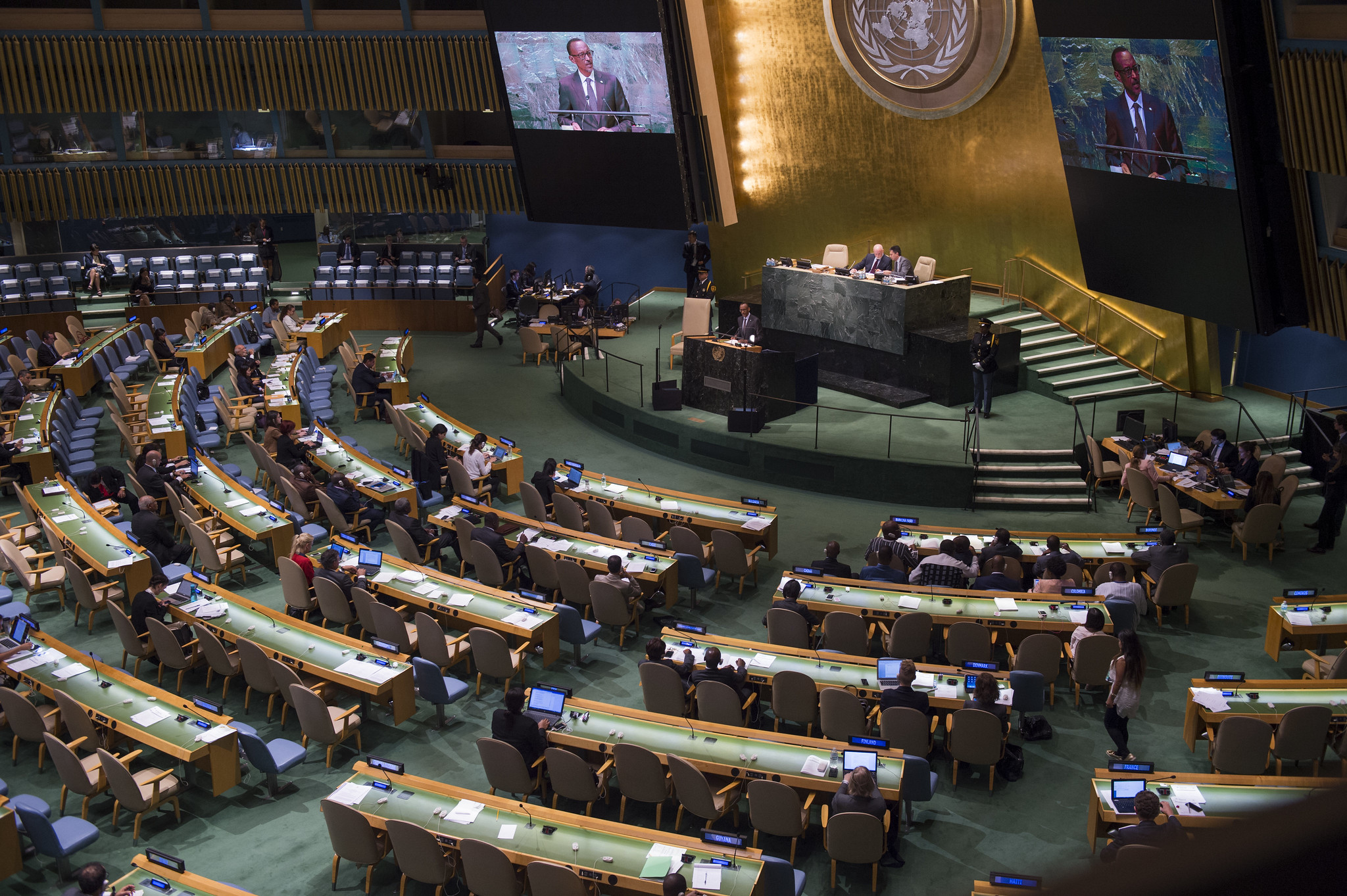Could the Populist Right Take Back Poland?

Published by The Lawfare Institute
in Cooperation With

On Nov. 6, the morning after Trump’s 2024 election night victory, members of the right-wing Law and Justice party stood in the Polish Parliament clapping and chanting “Donald Trump.” Law and Justice politicians widely believe a “red wave” will spread from the United States to Europe and help them win Poland’s presidential election in May. So far, none of the polls confirm this prediction, but the party remains enthusiastic. In light of Polish society’s concern over the war in Ukraine and sympathy for the United States, Law and Justice politicians are touting a special relationship with the previous and future U.S. president. Polish society, for its part, thus far seems unconvinced. In response, the Polish internet has been flooded with jokes, memes, and drawings ironically depicting how the Polish right (which is usually very vocal about putting the nation’s interests above current party politics) is rejoicing in something so obviously against Polish national interests. This is due to Trump’s positive opinion of Vladimir Putin, his threat that during his presidency the U.S. will not stand by NATO countries in case of war, and most of all the possibility that the U.S. will quietly quit the alliance.
Law and Justice politicians had long wished for Trump’s return to the White House, which they believed would disprove critiques that they had alienated Poland internationally during their rule. When Trump was on trial in New York City for 34 felony counts of falsifying business records, Andrzej Duda (the Polish president from Law and Justice) visited him. The Polish president has a mostly representative role, since this position doesn’t guarantee executive or legislative power, only the ability to veto certain laws. Duda’s visit was therefore more connected to the politics of his party than to the Polish government. Duda and Trump took photos with various golden items in front of the elevators in Trump Tower and announced a list of topics they discussed, which included NATO defense spending and the war in Ukraine. After welcoming him to Trump Tower, the former president called Duda his “friend.” The meeting was beneficial for both men. By hosting a foreign dignitary like Duda, Trump clearly demonstrated his position as the undisputed leader of the Republican Party, while Law and Justice, which lost the parliamentary elections in October 2023, sought to prove that Duda and Law and Justice’s leadership maintain special relations with a possible future president of the United States. During Trump’s last term, he waived U.S. visas for Polish citizens, and Duda offered to name a U.S. military facility in Poland “Fort Trump.” Before the coming inauguration Trump has invited both Duda and the former Law and Justice Prime Minister, but he has not invited the current Prime Minister Donald Tusk. This enabled a right-wing media narrative that only Law and Justice can secure the Polish-American alliance under a Republican presidency that is skeptical about military support for Ukraine and America’s military presence in Europe—issues that are crucial for most voters in Poland. (In February 2024, one poll found that 83 percent of Poles support a NATO military presence in Poland. In September 2023, another poll found that 74 percent of Poles favored military and political support of Ukraine.)
However, neither Duda’s friendship with Trump nor Law and Justice’s hopes in the new administration mean that Law and Justice is the Polish branch of MAGA. Law and Justice and Trump’s Republican Party have some differences, primarily in the realm of economic policy and the European Union. Law and Justice enacted multiple social programs aiding families and the elderly, shifting the neoliberal consensus that had dominated Polish politics after 1989. Nevertheless, the two are roughly similar in ideology and their approach to governing. Both are driven by the feeling of exclusion and victimization. They rally their voters by warning of alleged attacks by the hegemonic left (on conservative values) and migrants (on the country as a whole). Both invoke this illusory emergency to justify extraordinary and potentially extralegal measures.
During its time in power, Law and Justice tried to establish total control over the state by taking over state institutions and replacing their staff with employees loyal to the ruling party and its worldview. This blurred the difference between the state, the party, and various right-wing organizations. It extended Law and Justice’s power by, for example, using state television as a propaganda tool, while also feeding the hope that even if Law and Justice lost power, a conflicted liberal majority would leave the staff they had appointed in place. Meanwhile, Law and Justice created a variety of new cultural, historical, and military institutions with big budgets and unclear goals. Scandals related to shady connections between private business and politics were widely investigated by the liberal press. Journalists also revealed that Law and Justice allegedly used antiterrorist spy programs to spy on opposition journalists as well as political opposition leaders and their lawyers.
Total control is impossible without direct influence over the juridical system, which Law and Justice (like Trump) also sought. The first large-scale protests against Law and Justice broke out in response to its plan to reform the Constitutional Court, which the court itself found to be illegal. The changes to the court, passed with a simple majority in Parliament, changed the rules for the court’s decision-making (concerning quorum, majorities, etc.) and led to the appointment of new judges. These changes sparked criticism from legal and human rights associations in Poland and abroad. Law and Justice-appointed judges on the court took part in issuing several decisions that are now open to challenge in Polish and international courts, as some legal scholars, as well as the European Court of Human Rights and the EU Parliament, have questioned their legality. The country’s current ruling coalition refuses to appoint judges to positions vacated by judges who have reached retirement age and is working toward a legal solution, which will be possible only if Law and Justice loses the presidential election. Duda, who is responsible for accepting any changes to the legal system, is reluctant to agree to them, which would indicate that moves made under the Law and Justice government were illegal.
Law and Justice combined its dream of legislative, judiciary, and executive dominance with strong opposition to migration from non-European countries, which it framed as an inherent external danger. In 2021, Law and Justice’s government built a fence on Poland’s border with Belarus, where migrants (mainly from the Global South) try to enter the European Union. Duda also placed the area around the border under a state of emergency, which made it much harder for human rights and refugee aid organizations to operate there. Right-wing politicians staged several press conferences at the border, appearing in military-style jackets with Polish flags, with the fence appearing in the background. During the 2023 elections, Law and Justice stressed migration even more than the war in Ukraine in the hopes of achieving a rally-around-the-flag effect.
The last major similarity between Law and Justice and Trumpism is how both seek legitimacy through religious fundamentalism—not only in the sense of gaining votes but also by relying on the institutions, funds, and organizational capabilities of the religious right to assist in taking over the state. Ultrareligious organizations in Poland received an enormous amount of government funding during Law and Justice’s time in power. The ruling party even changed the academic evaluation system to give more weight to publications in theology. Nevertheless, religious fundamentalists were keen to remind Law and Justice about the continued political debt it owed them for their support, leading to legislation that eroded Law and Justice’s popularity. Law and Justice had initially considered passing a near-total ban on abortion through a parliamentary bill in 2016 but dropped the idea due to massive protests. In 2021, during the coronavirus pandemic, Law and Justice used the Constitutional Court (whose legal status was dubious) to pass a near-total ban. The court’s grounds for passing the ban were debatable, and the decision violated EU law. The massive protests that broke out in response to the ban not only mobilized inhabitants of even the smallest towns but also created a system of symbols and slogans to criticize the ruling party that turned into a subculture of protest.
In the wake of Trump’s reelection, domestic factors unrelated to the United States raise the possibility that Law and Justice might return to power. Domestically, although Law and Justice was pushed out by a broad coalition that formed a parliamentary majority, it still has the biggest representation of any single party in the Polish Parliament and receives stable support from around 30 percent of voters. This strong base of support could help the party win back power if it managed to gain a slightly higher percentage of the electorate or convince the more conservative members of the ruling coalition to join them. Since the last parliamentary elections, Law and Justice has hoped to profit from conflicts within the ruling coalition, which contains an alliance of parties that vary widely from far left to Catholic right. So far, however, this coalition remains united by the goal of restoring the rule of law and eradicating Law and Justice’s control of the state with what liberal Prime Minister Donald Tusk has called an “iron broom.”
Still, the ruling coalition faces a major challenge in maintaining the support of liberal and young voters due to its failure to legalize abortion and civil partnerships for same-sex couples—key legislation that Tusk had promised to pass within 100 days. For the time being, Duda is still able to veto any law that goes against his party’s positions. However, if the liberal mayor of Warsaw, Rafał Trzaskowski, wins the 2025 presidential election, there will be no outside obstacle to passing this legislation and the coalition lawmakers will have to come to an agreement. Though conservatives within the coalition seem to cautiously agree to some form of civil partnerships, which around 62 percent of society supports, their position on abortion is more complicated. (According to IPSOS polls, if a referendum were held concerning on-demand abortion access, in 2019 over 50 percent of respondents indicated that they would vote yes, and in 2023 this figure grew to over 70 percent.) Conservatives tend to want to bring back the previous law and decriminalize assisting with abortion (under both the previous and current law, women who received an abortion were not punished or charged). Some of them suggest a referendum, but to be legally binding it would require over 50 percent turnout. Feminist activists also lean against this idea, arguing that basic rights should not be subject to a referendum.
So far, until the presidential election, these are rather minor concerns for the ruling coalition. After eight years in power, Law and Justice still has a major problem with gaining new supporters. Over the past year it has not gained much new support, while Civic Platform (the main party in the current ruling coalition) has taken the lead in the polls. Most polls also show that Poles would vote for the liberal coalition again. Law and Justice’s attempt to draw the media’s attention to issues they were hoping would undermine the coalition’s support have largely failed. Meanwhile, Tusk unlocked billions of euros from the EU’s post-pandemic relief fund, which had been blocked due to Law and Justice’s rule-of-law breaches. Poland has also taken over (from Hungary) the rotating presidency of the Council of Europe, which guarantees influence on topics on which the council is working. Tusk has strongly emphasized that Poland’s council presidency will be focused on topics related to security, which can be seen as an attempt to mobilize the union to act ahead of possible problems that Trump’s election might bring.
At the moment, Law and Justice is not particularly well equipped to conduct a successful campaign. Poland’s top electoral commission found it responsible for misusing government funds, causing it to lose public subsidies—the main source of funding for political campaigns. Though this decision was overturned by the Supreme Court (which is separate from the Constitutional Court), some of this court’s members were appointed with legal flaws due to Law and Justice’s attempts to take control over the judicial system, and it’s unclear whether the ruling will go into effect. In the meantime, a former vice-minister of justice from Law and Justice has fled to Hungary and was granted asylum. Polish prosecutors want to arrest him for being involved in misusing public funds intended to aid crime victims. Law and Justice’s electorate has met his flight with understanding, but it might be seen as problematic among the wider public, to which the party must appeal in presidential elections.
Since Law and Justice leader Jarosław Kaczyński is in his mid-70s, candidates representing different factions have begun fighting to replace him. Kaczyński, for his part, decided to support in the presidential election a candidate unrelated to any of these factions: Karol Nawrocki, a historian and head of the Institute of National Remembrance who is not a member of Law and Justice. Because the party’s brand is tarnished, Law and Justice is promoting Nawrocki as a “citizens’ candidate.” This outsider image has not helped him gain popularity; polls suggest that some Law and Justice supporters would prefer to vote for a more far-right candidate. This makes it very likely that Trzaskowski, the popular liberal mayor of Warsaw, will win. Trzaskowski is a very recognizable politician who ranks highly in public trust ratings and has been preparing for this campaign after losing to Duda by a small margin four years ago. If Trzaskowski is successful, the liberal coalition will have a free hand to undo Law and Justice’s changes and prosecute the party’s violations of the rule of law.
The key questions then will be: Will the ruling coalition manage to clean up the legal system in Poland and rebuild functional Constitutional and Supreme courts? Will the coalition survive or fall apart along ideological lines, with conservatives forming a new political entity in partnership with less radical members of Law and Justice? If so, will this lead to the formation of a new, even more Trump-like party composed of populists and the far right?

.jpg?sfvrsn=d9aaf2a5_3)



